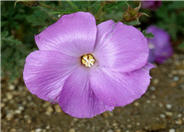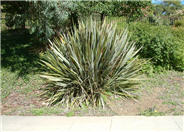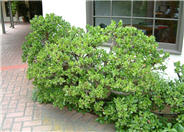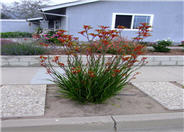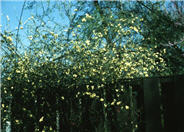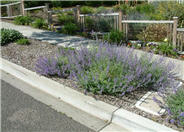Hotlinks:
| Designer: Barbara Jackel Landscape Dsgn | Grid-Like Fencing |
Photographer: GardenSoft |
Soils and Compost:
Incorporate compost 6" into your soil to retain water, reduce compaction, feed earthworms, and provide valuable nutrients to your plants.
Water Saving Tip:
Check your irrigation systems at least once per month (or after each mowing).
Monitor each cycle to identify obvious problems and to confirm that all of the components are functioning properly.
Contact your water agency for assistance.
Integrated Pest Management:
Develop healthy soil for plants that are vigorous and naturally pest-resistant.


